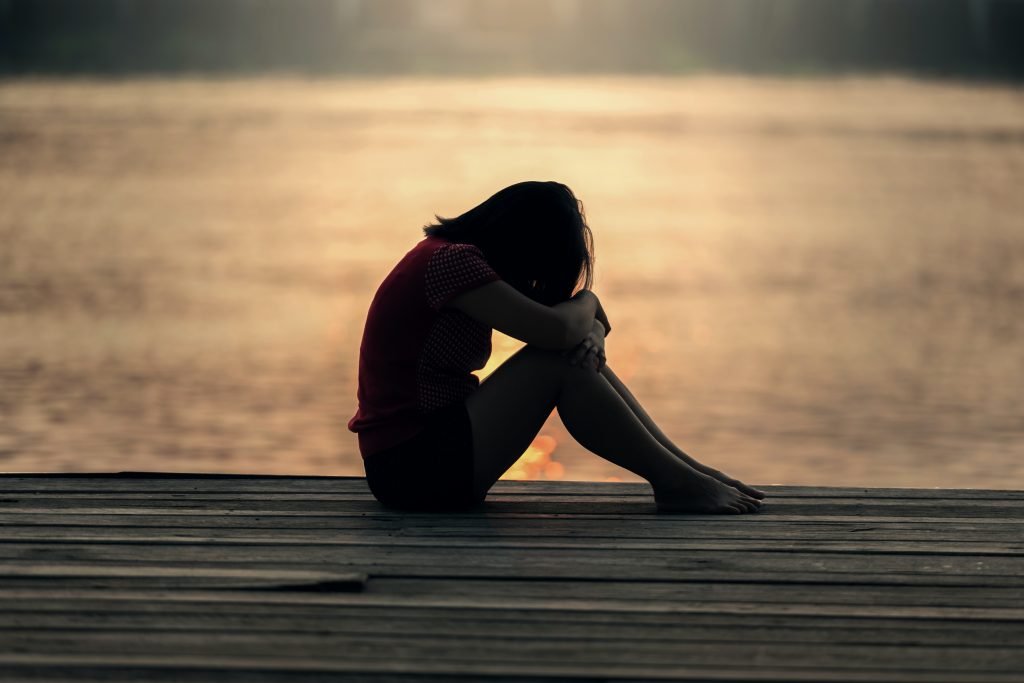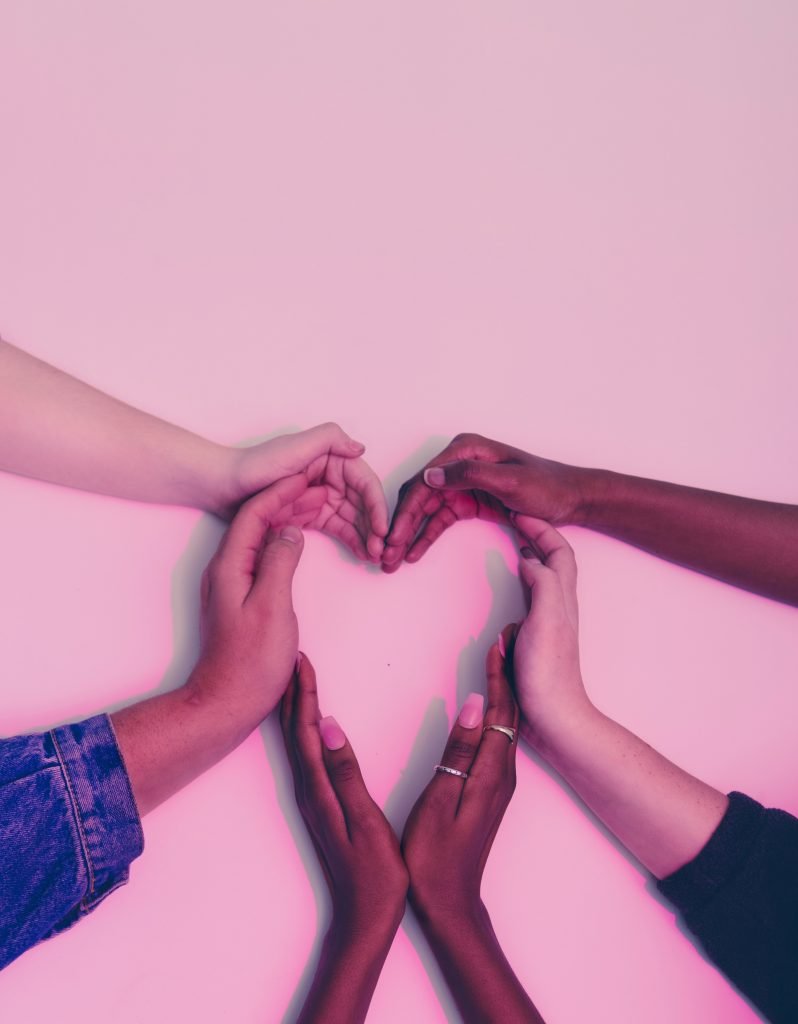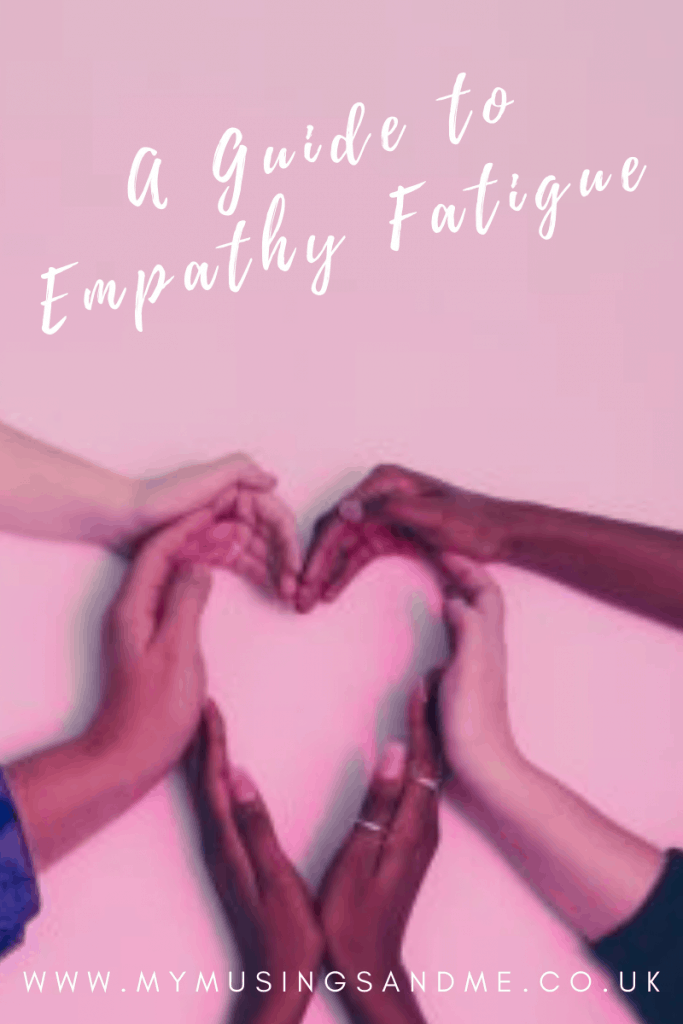Writing this isn’t a comfortable feeling. Empathy and fatigue don’t sit well in the same sentence. But I truly believe it’s something that needs to be addressed. We must speak about it. Drag it into the daylight for everyone to see and acknowledge. Only by talking about it can we stop it from dragging us backward.

Saying the words ’empathy fatigue’ makes me wish I could take them back. I hate the thought that there is a time where empathy might have to be denied or withdrawn. It’s the antithesis to much of what I believe or hope for (more here). A more empathetic society. Where we lean on each other because together we are stronger. A world where it is okay to ask for help. And a world where support is freely given.
Empathy Reality Check
And yet, empathy fatigue is real. I’ve felt it. I’ve been there, I’ve done that. Got multiple t-shirts. And I’ve felt awful about it every. single. time. Whether it’s wishing someone could just sort themselves out. Or being hesitant to check a message or pick up the phone. That moment where I just wish they’d be okay. The frustration. The fear that I’ll be asked to lend a hand or give time when I simply have none. When someone comes to me needing to talk but I’m up to my eyeballs in my own thoughts and feelings.
It’s times like these that I need an empathy reality check. Although it feels wrong it’s a clear sign that I need to put my self first. To quote Bilbo Baggins:
Lord of the Rings, J.R.R. Tolkien
At these times, I need to stop. Pause. Check in with myself. Because this is a sign. My body and mind are screaming out for me to looking after myself. And I must heed the call.
For 4 Ways to Check in with Your Mental Health read here.
Empathy Isn’t Easy

But how can I? When saying yes to myself means a no for someone else. How could I, in good conscious, do so? Do I believe my problems are more important than that of another? For the record, I don’t. I truly don’t. But what’s the other option? Keep pushing myself and my own problems away? Deny myself what I readily give to others? This seems like a noble and selfless thing to do. But how can it last? As per an earlier post, we mustn’t “set ourselves on fire to keep other people warm”. Because if we do then we’re no good to anyone.
Whilst this might seem like an overestimation or like amateur dramatics. It’s not. Empathy isn’t easy and empathy fatigue is real. It happens when we’ve pushed ourselves too far. If you have the time or the mental capacity to help someone when they need it, please do. This is the surest way to a better world. But if this post resonates with you. If you know what I’m talking about please say yes to yourself. At least as often as you say yes to those around you; if not more.
For The 11 Tips You Need for Effective Listening read here.
A Solution?
We need more acknowledgement of the reality of giving too much. Because empathy fatigue occurs when we push ourselves too far. When we take the world and it’s burdens on our shoulders. And we’ve left our personal boundaries so far behind in the distance. That the line we said we wouldn’t cross can’t be seen anymore.
People who experience empathy fatigue are often the givers amongst us. The person who goes above and beyond. Whose energy seems boundless. Who is always there to lend a hand or a shoulder to cry on. They instinctively seem to know what to say or when to get involved. They live amongst us as colleagues, parents and friends. Being there for others is part of who they are.
So, how to deny that quintessential part of ourselves? Possibly the part that defines us in some way. What’s an empathetic human to do? There doesn’t seem to be a good solution. To suggest avoiding empathy is to betray who many of us are or what we believe in. Because empathy is what makes us human. It’s what builds connections between people. Ultimately it makes this world bearable. So what do you do? When it’s the eleventh hour, when your foot is out the door and a situation arises necessitating empathy. Yes or no?
Perhaps there is a balance to be found. Too much empathy and fatigue beckons at the door. Too little and we’re not being true to ourselves or we feel guilt for abandoning people; possibly when they need us most. We must learn to live in the place inbetween. When we see or feel the warning signs. Step back. Pause. But do so safe in the knowledge that looking after yourself means you can keep giving. You can make the world a better place with your empathy. Because saying, not right now, is not the same thing as saying no.
What are your thoughts on empathy fatigue? Have you experienced it? And how have you dealt with it? Comment below!


I loved this blog article – it’s, as you say, hard to admit, but also very true! Fatigue comes with all kinds of good things – kindness, forgiveness, empathy,…..
Yes some of the best things are accompanied by fatigue and we need to check in with ourselves and share some of those things with ourselves not just others.
I love this post so much and I’m so proud of you for posting it. I know how worried you must’ve felt and I hope you know how much this resonates with so many.
I am the kind of person who definitely puts others before myself to the point where I fall and burn out hugely so this is such a refreshing post to read. It’s like a vampire sucking the energy from us and it’s hard to get back up from yet we do it time and time again. Balance is key and is different for every person and situation.
Thank you for being so honest and real. We need it.
Stay wonderful!
Thanks so refreshing to know it’s not just me. It’s so tempting to just keep on giving and giving and giving. But it never seems to end!
Thank you for being so honest and opening up! There are so many who feel the same way and the important thing is to know you aren’t alone!
Really enjoyed reading this, Thankyou for sharing xx
This is so true, all of it. After all, even in airplanes when they give the emergency talk (every time), they remind us to put the oxygen mask on ourselves first, before helping others. Because if we do not help ourselves first, we simply cannot help others.
I fear that sometimes helping others becomes my getaway, though, from my personal issues. If I do stuff for other people, I can more easily ignore my own anxieties and depression. So that, too, is why it is important to step back and listen to myself. Burning out is not fun.